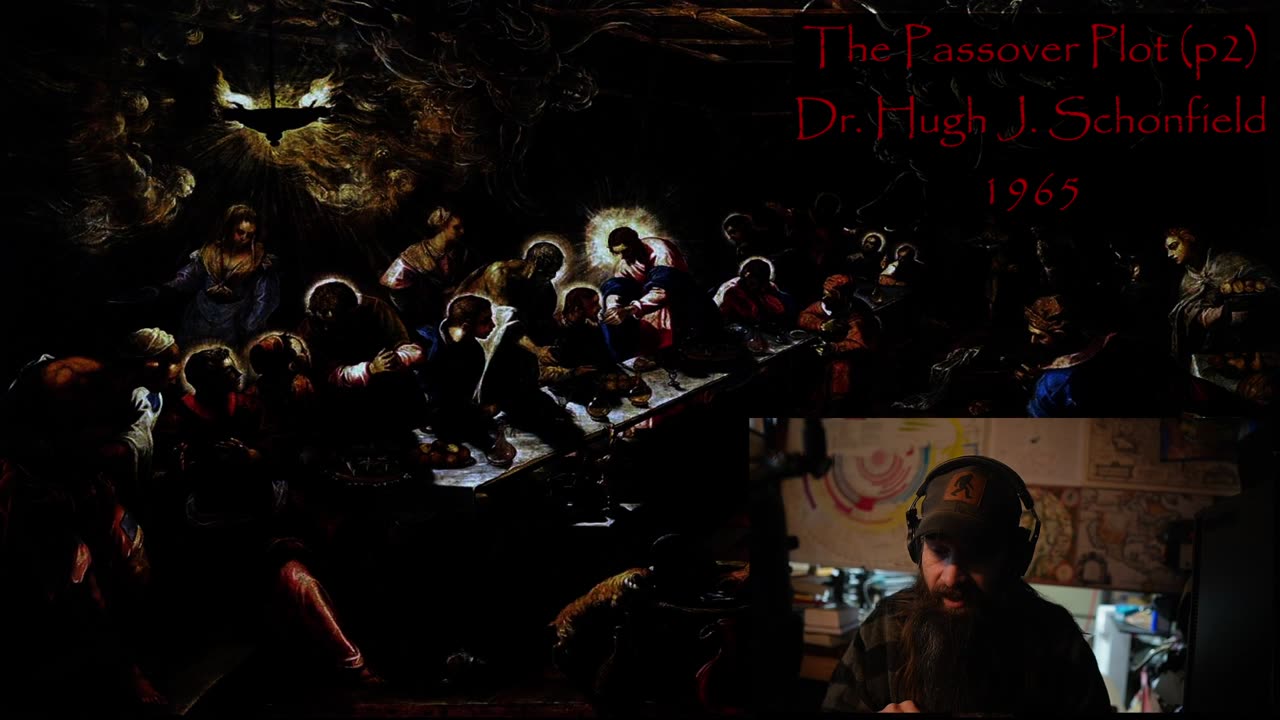Premium Only Content

The Passover Plot (p2) - 2
The Passover Plot (p2) - 2
In this segment, the video explores the historical roots of the early followers of Jesus, commonly referred to as Nazarenes, emphasizing their distinct identity from later Christians. It discusses the sect's links to earlier Jewish traditions and groups, including the Samaritans and Essenes, and analyzes their beliefs, practices, and their relationship with Jesus's teachings, particularly regarding the concept of the Messiah and the expected 'just one'.
Key Points:
The Early Followers of Jesus
The first followers of Jesus called themselves Nazarenes, distinct from later Christian definitions, and viewed themselves as the true preservers of Israel's faith. The name 'Nazarene' was more sectarian than geographical, linking to a belief in upholding the faith against Judean traditions.
Sectarian Dynamics
During the time of early Christianity, multiple Jewish sects including Samaritans, Essenes, and others coexisted, each maintaining unique beliefs about the laws of Moses and the genuine practice of faith. The Nazarenes, identified closely with John the Baptist and sharing rituals like baptism, emerged amongst these groups.
Cultural and Religious Isolation
The Nazarenes lived in geographical isolation in Northern Palestine, which fostered their distinct religious customs compared to Judeans. Their practices included vegetarianism and a rejection of animal sacrifices while adhering to Jewish traditions like circumcision and Sabbath observance.
Connection to Early Christianity
The video addresses how the Nazarenes likely influenced early Christianity by their belief that Jesus was the Davidic Messiah and their connections to various Jewish sects at the time, suggesting that Jesus's family and followers were also part of this broader sectarian community.
Influence of Nurtured Traditions
The Nazarenes maintained ancient traditions, including lifelong commitments similar to Nazarite vows. Jesus’s teachings often contradicted these values, creating a divide between him and his early followers, who viewed his actions as contrary to their customs.
The Figure of Jesus as the Just One
Discussing Jesus’s identity as the 'Just One,' the video highlights that he was often positioned against traditional Nazarene views. His teachings and lifestyle were seen as radical alterations to the Nazarene way of life, which led to his labeling as a false Messiah by later Nazarenes.
-
 40:43
40:43
Kimberly Guilfoyle
8 hours agoDems Double Down on Delusion-Why? Live with Tony Kinnett & Bo French | Ep.202
77.8K35 -
 1:28:42
1:28:42
Redacted News
6 hours agoBREAKING! SOMETHING BIG IS HAPPENING IN EUROPE ALL OUT WAR IS COMING AGAINST RUSSIA, TRUMP FURIOUS
121K287 -
 47:50
47:50
Candace Show Podcast
7 hours agoBREAKING: Judge Makes Statement Regarding Taylor Swift's Text Messages. | Candace Ep 155
113K119 -
 1:14:23
1:14:23
Josh Pate's College Football Show
3 hours ago $0.29 earnedCFB’s Most Hated Teams | FSU & Clemson Future | Big Ten Win Totals | Star Rankings Overrated?
14.5K -
 1:33:47
1:33:47
CatfishedOnline
5 hours agoGoing Live With Robert - Weekly Recap
27.8K -
 55:18
55:18
LFA TV
1 day agoEurope’s Sudden Turn Against America | TRUMPET DAILY 3.6.25 7PM
32.2K3 -
 4:21
4:21
Tundra Tactical
5 hours ago $2.12 earnedPam Bondi MUST Enforce Due Process NOW!
23.7K1 -
 56:42
56:42
VSiNLive
6 hours agoFollow the Money with Mitch Moss & Pauly Howard | Hour 1
48K1 -
 1:05:32
1:05:32
In The Litter Box w/ Jewels & Catturd
1 day agoShalom Hamas | In the Litter Box w/ Jewels & Catturd – Ep. 756 – 3/6/2025
103K37 -
 1:23:00
1:23:00
Sean Unpaved
7 hours ago $3.19 earnedNFL Free Agency
53.4K4